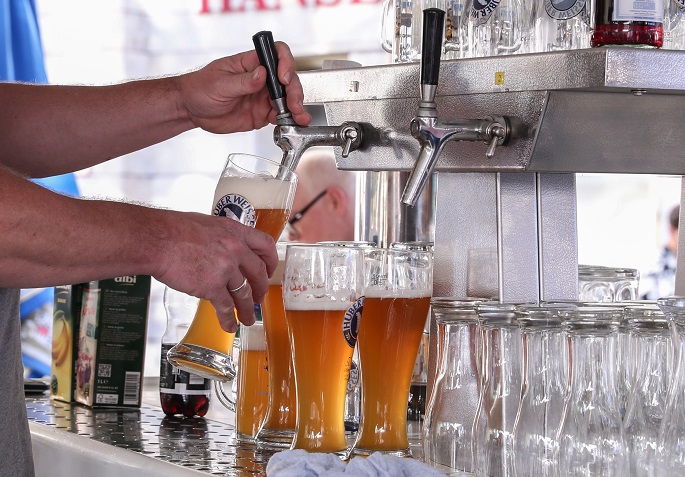New Alcohol Act comes into force on March 1
Published : 05 Jan 2018, 00:29
The new Alcohol Act that has been long in the preparation will come into force fully on March 1.
However, some of the changes have already become effective on January 1, said the Ministry of Social Affairs and Health in a press release.
The new Alcohol Act will combine the 13 regulations previously adopted under the old Act. A significant number of outdated and old-fashioned norms have been excluded from the new Act. The president confirmed the Alcohol Act on December 28, 2017.
The purpose of the Alcohol Act continues to be the prevention of negative effects of alcohol. The reform will also maintain Alko’s retail monopoly and the existing licensing system for retail sales of alcoholic beverages.
A few changes have come into force right after New Year on January 1. Shops will be allowed to sell strong beers, ciders and long drink beverages. Restaurants may advertise their happy hour discounts, retail sale licences may be applied for craft beers, and rules on online price listings will be made less restrictive. Regulations concerning restaurant opening hours will be removed, but the changes concerning the serving hours will not become effective until March 1. The Ministry of Social Affairs and Health issued a statement on these changes before Christmas.
In the future, a single licence to serve alcohol will be sufficient for serving all alcoholic beverages. Separate A, B and C type licences will no longer exist. Restaurants can apply for a licence for retail sales of alcohol daily between 9:00 am and 9:00 pm. The rules will be the same for other types of alcohol retail sales.
According to the new Act, an adult manager must be present during each shift, but no specific qualification criterion is set for this person. Persons who are 16 years of age may serve alcohol at a restaurant under the supervision of the shift manager.
In the future, restaurants will be allowed to share serving areas. In addition, the previous system of temporary serving licences will be replaced by a system involving less bureaucracy. The so-called catering permits will allow restaurants to serve alcoholic beverages on pre-approved business premises and in venues and festivals after they have submitted notice of this to the Regional State Administrative Agency.
The regular serving hours will end at 1:30 am in the future as well. However, restaurants may continue to serve alcohol until 4:00 am by notifying the authorities. This means there will no longer be any licensing process, but restaurants will have more obligations to maintain public order. Moreover, restaurants will no longer be obligated to close their doors half an hour after their serving hours have ended, but their customers must consume their drinks within one hour of the end of serving. The authorities may restrict or prohibit the serving of alcohol to prevent public disturbances.
The new Act will permit Alkos to extend their opening hours by one hour from the previous 8:00 pm to 9:00 pm. In the future, Alkos may also arrange wine auctions, for example. When voting on the new Alcohol Act on December 19, parliament required that the government clarify the ambiguous regulations regarding distance selling of alcohol. Parliament requires that Alko continues to have the exclusive right to retail trade in alcoholic beverages.
At the same time, it must be ensured that Finnish traders are on a par with foreign sellers of alcoholic beverages. The Ministry of Social Affairs and Health has appointed a working group to investigate the restriction of cross-border distance selling of alcoholic beverages. The working group’s term will end on March 31.


